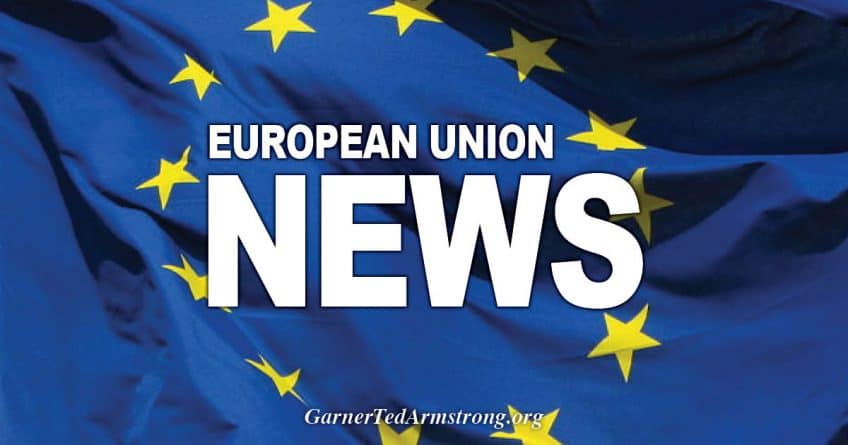The EU has redacted the only nice thing it was planning to say about Russia from its landmark strategy paper.
“Many common interests and a shared culture in fact link the EU and Russia. That is why the EU strategy aims at engaging Russia in some specific issues,” the EU had been planning to say in its ‘Strategic Compass’, according to a previous draft dated 9 November.
But the latest version of the text, dated 6 January and seen by EUobserver, cut out the warm words.
“The European Union remains committed to a united, long-term, and strategic European approach [toward Russia],” it said instead.
The Strategic Compass, when it is finally agreed in March, will underpin EU thinking on defence for the next decade, French foreign minister Jean-Yves Le Drian noted on Friday (14 January) after having discussed it with his EU peers in Brest, France.
“Russia wants to go back in time to when the EU didn’t exist and Europe was subject to the spheres of influence of great powers,” EU top diplomat Josep Borrell also said.
They spoke after relations with Moscow nosedived during the past two months over Russia’s military build up around Ukraine and its increasingly aggressive rhetoric.
And they both warned of “massive” EU and US sanctions against Russia if it invaded its neighbour once again.
Borrell also pointed the finger at Russia over a cyber-attack on Ukrainian government websites the same day.
There was no hard “evidence” of Russia’s culpability, Borrell said.
“But I can imagine with a certain probability … where it [the cyber-attack] came from,” he added.
In a further nod to Russia’s malign activities, the new draft of the Strategic Compass also spoke of a “deconstruction of the security architecture in Europe inherited from the Cold War, from the Treaty on Conventional Forces in Europe, to the Open Skies Treaty, and the Intermediate-Range Nuclear Forces Treaty”.
It voiced fresh concern on Russia-type “hybrid tactics such as cyber-attacks and disinformation, direct interference in our elections and political processes, economic coercion and the instrumentalisation of irregular migration flows”.
It also added that countries such as Georgia and Ukraine faced “hostile interference by Russia and the extensive use of hybrid tactics, [which] compromise their stability and their democratic processes and have direct implications for our own security”.
And it alluded to Russia’s increasingly aggressive behaviour in Africa, such as deployments of Russian mercenaries in the Central African Republic and Mali.
“We are witnessing a growing presence of our strategic competitors from the Sahel to the Horn of Africa,” the new draft added.
In the meantime, Le Drian also noted that he and German foreign minister Annalena Baerbock will visit Ukraine’s front line in the near future.
But Baerbock will first go to Kyiv and Moscow on her own on Monday and Tuesday.
“Personally, it is very important to me that we intensively use the different channels of conversation,” she said in Brest.
The centerpiece of the Strategic Compass – to create a new EU rapid-reaction military force – remained unchanged.
But the latest draft also contained new warnings on China.
“Russia and China are expanding their nuclear arsenal and developing new weapon systems,” it added.
“China has been substantially developing its military means and aims to have the technologically most advanced armed forces by 2049, impacting regional and global security,” it also added.
Jihadism
It contained several extra paragraphs on counterterrorism – a special priority of the French EU presidency.
Threats included “a combination of home grown terrorists, foreign fighter returnees, attacks directed, encouraged or inspired from abroad, as well as the propagation of ideologies and beliefs that lead to radicalisation and violent extremism”, it added, for instance.
But it mentioned only jihadist groups in this context, even though far-right groups carried out more attacks than Islamist ones in Europe in recent times.
In other changes, the new draft accelerated a deadline for a new EU Single Intelligence Analysis Capacity from 2025 to 2023.
It spoke of Europe’s need to invest in “quantum computing, Artificial Intelligence, and Big Data”.
It mentioned as a “core interest” the need to “support Bosnia and Herzegovina as a single, united and sovereign country”, amid a mounting threat of secession by its Serb entity.
Iran was “likely to remain an important source of regional instability through its direct and indirect support to political and military proxies and through the proliferation and dissemination of weapons, including transfer of missiles”, it added
And the EU should “increase … investment in peace and stability of the Middle East and the Gulf”, it also added.
Source: https://euobserver.com/world/154094
[Disclaimer]








